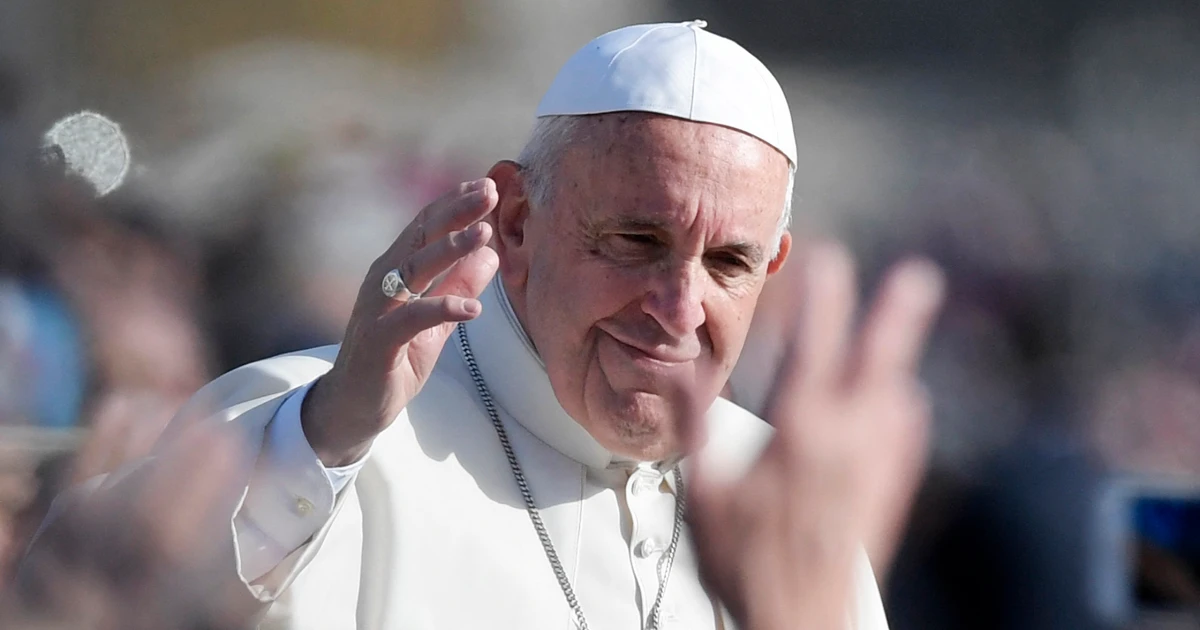In the 12 years since Cardinal Jorge Mario Bergoglio was elected Pope Francis on March 13, 2013, we’ve witnessed a rapid expansion of LGBTQ rights around the world. The pope’s death Monday is a reminder of the surprising ways his papacy was part of that wave of acceptance.
Francis set the tone early in his appointment, during an in-flight press conference aboard the jet nicknamed Shepherd One en route from Rio de Janeiro to Rome in July of 2013. When a reporter posed a question about gay priests, the newly appointed pope quipped: “If a person is gay and seeks God and has good will, who am I to judge?”
I’ve experienced both the sting of exclusion and the quiet hope that, perhaps one day, church pews will be filled with all those who long to find God’s love.
With that simple statement — “Who am I to judge?” — the pope laid the foundation for his compassionate approach and inclusion of the LGBTQ community.
Indeed, the late pope’s nonjudgemental approach to LGBTQ issues did not go far enough for many LGBTQ advocates. But it’s important to judge his legacy in the context of the Catholic Church, and to recognize how remarkable his approach was given the institutional norms that for decades suppressed and ignored LGBTQ devotees.
The size of the LGBTQ population in the United States has grown from 3.5% in 2012 to 9.3% in 2024, according to Gallup. A spokesperson from the polling firm told me that 5.6% of Christians in the United States today identify as LGBTQ. More and more LGBTQ Christians continue to come out and find a home in the body of Christ. I believe Pope Francis had some impact on those changes.
For many LGBTQ Christians like myself, the changes Francis championed feel personal. I’ve experienced both the sting of exclusion and the quiet hope that, perhaps one day, church pews will be filled with all those who long to find God’s love, regardless of whom they love. I’ve witnessed Catholic LGBTQ friends endure so much harm from the church hierarchy. Francis’ change of posture toward the community let light shine in the darkness.
I’ve seen the hope Pope Francis has given to LGBTQ Catholics in particular. One of my best friends from college come out as a lesbian and yet maintain her Catholic faith in the midst of much hate. There’s been so much positive change toward LGBTQ equality since we started college together in 2008; I was even able to officiate her wedding in 2022. While worshipping with her on multiple occasions for Catholic mass, I’ve given thanks to God for the many LGBTQ Catholics who have stayed committed to their faith.
The Vatican did back up the merciful media soundbites reverberating around the world with some substantive policy changes, including allowing transgender people to be baptized and serve as godparents, and allowing priests to offer blessings of same-sex couples. These changes did not amount to full equality, but they were meaningful progress toward recognizing the God-given dignity of LGBTQ people. The pope also elevated a number of LGBTQ-friendly leaders to positions of greater authority in the U.S. Catholic hierarchy.
“Homosexual people have the right to be in a family. They are children of God,” Francis said in a 2020 documentary. “You can’t kick someone out of a family, nor make their life miserable for this. What we have to have is a civil union law; that way they are legally covered.”
In addition to statements to the press and policy change, Francis brought hope by meeting with and writing in support of LGBTQ-inclusive Catholic ministries. “I pray for your faithful, your ‘flock,’ and all those whom the Lord places in your care, so that you protect them, and make them grow in the love of Our Lord Jesus Christ,” the pope wrote to the Rev. James Martin, the most prominent Catholic advocate of LGBTQ rights in the United States.
This past October, Francis met with a group of transgender and intersex Catholics. The nearly 90-minute meeting, organized by New Ways Ministries, included a doctor who provides gender-affirming care.
“It is only by listening to stories of these individuals, as well as the individuals who care for and about them, that the Church will be able to fully hear the voice of the Holy Spirit calling the Catholic community to break out of old, ill-informed teachings and practices,” said the organizer of the meeting Sister Jeannine Gramick.
In many ways it’s a sad reflection of what we expect of Christian leaders to find Pope Francis so revolutionary.
Francis’ plea for mercy for the vulnerable, whether LGBTQ people or migrants, is both remarkable — and basic Christianity. In many ways it’s a sad reflection of what we expect of Christian leaders to find Pope Francis so revolutionary. The pope said that Christians should apologize for the Church’s harm to LGBTQ people, though the harm outlives him. And we can acknowledge that Francis did not enact all the changes in doctrine that would honor LGBTQ dignity and fully repair the harm done by the Catholic Church to LGBTQ people.
The pope envisioned the Church not as a fortress of judgment but a field hospital — an institution where wounds are acknowledged, and healing is offered with a generous dose of compassion.
Pope Francis’s legacy is a call — to look beyond our fears, to challenge our prejudices, and ultimately, to choose mercy over judgment. And for those of us who have long felt the pain of exclusion, that call offers a glimmer of hope that one day, we might finally be home.
